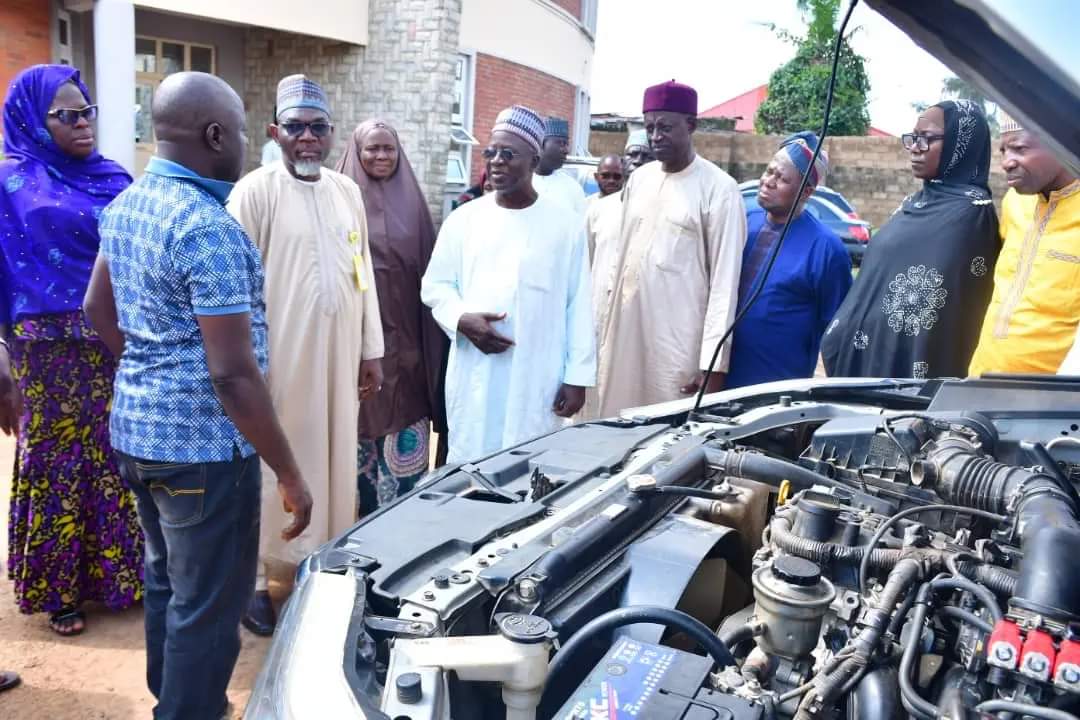Kwara State University (KWASU) has officially signed a Memorandum of Understanding with two Chinese firms to embark on a large-scale initiative aimed at converting petrol vehicles to Compressed Natural Gas (CNG) and electric vehicles.
This partnership was announced by the Vice-Chancellor of KWASU, Jimoh Shaykh-Luqman, during a press briefing in Ilorin, the capital of Kwara State.
“We have successfully converted three vehicles to electric and one to CNG,” the Vice-Chancellor revealed, emphasizing that KWASU is the first institution in Nigeria to achieve such a significant milestone with the support of these two reputable companies.
Highlighting the importance of quality and safety, Shaykh-Luqman stated, “Partnering with reputable companies for the supply of CNG conversion kits is a proactive step to ensure quality and avoid substandard products that could pose safety risks.” The university’s goal is to make this cost-saving initiative widely accessible, thereby promoting environmental sustainability.
With rising petrol prices and increasing carbon emissions posing serious health risks, KWASU’s initiative aims to address these challenges head-on. “While a litre of petrol costs around N1,200, a kilogram of gas is just N200. Additionally, the risk of inhaling carbon emissions is non-existent,” Shaykh-Luqman noted, underscoring the financial and ecological benefits of the conversion.
The university is preparing to launch a site dedicated to the commercial project, which is expected to bolster its internal revenue generation efforts. “When we converted our first two vehicles to electric, we presented them to Governor Abdulrahman Abdulrazaq, who commended and supported our efforts. Following his recommendation, the Ministry of Business Innovation and Technology entrusted us with three vehicles for conversion. We have successfully converted two so far,” he shared.
The Vice-Chancellor also mentioned that the governor facilitated the transfer of 22 vehicles from Kwara Express to KWASU for conversion, with work already underway on these units. “Recently, we completed the conversion of one vehicle to CNG, enabling it to run on both petrol and gas. We are not new to this process; we have been working on it for some time and are already seeing promising results,” he added.
Mr. Abdulazeez Akande, Chief Technologist in KWASU’s Department of Electrical and Computer Engineering, echoed the environmental and economic advantages of the conversion programme, highlighting the significant impact of vehicle emissions on ozone layer depletion. “The rising petrol prices have forced many people to park their vehicles. CNG offers a cost-effective alternative, providing up to 80 percent savings compared to traditional fuel,” Akande explained.
He further elaborated on the economic viability of CNG, stating, “One kilogram of CNG can cover at least 13 kilometres, making it highly economical. Since converting four vehicles that transport university staff to Malete, KWASU has saved approximately N840,000 in just seven weeks.”
Akande also discussed the durability of electric vehicle batteries, which have a lifespan of eight to ten years and operate without an engine. He noted, “A fully charged electric vehicle can cover between 80 to 150 kilometres before needing the next charge,” emphasizing the efficiency of this green technology.
While the cost of converting a vehicle to electric is approximately N6 million, the conversion to CNG is far more accessible, costing less than N1.5 million. “Electric vehicles use renewable energy, relying on a rechargeable battery instead of an engine,” Akande concluded, reinforcing the university’s commitment to leading the charge in sustainable transportation solutions.












